A Guide to Fair and Effective Workplace Investigations
- amaramartins
- Aug 13
- 2 min read
Workplace investigations are a critical component of maintaining a safe, respectful, and legally compliant work environment. When a complaint of misconduct, harassment, or a policy violation is raised, a thorough and impartial investigation is essential to understand the facts and take appropriate action. For People and Compliance professionals, mastering this process is non-negotiable.
Why Investigations Matter
Beyond legal obligations and company policy, a fair investigation protects both employees and the organization. It shows a commitment to a positive work culture, builds trust, and helps prevent future issues. A poorly handled investigation, on the other hand, can lead to legal exposure, reputational damage, and a breakdown of morale.
Principles of a Sound Investigation
Every investigation should be guided by a few core principles:
Impartiality: The investigator must be neutral and unbiased. Their goal is to find facts, not to prove a specific outcome.
Confidentiality: To the extent possible, information should be kept confidential. This protects the privacy of those involved and encourages witnesses to speak freely.
Timeliness: Investigations should be launched promptly. Delays can compromise evidence, cause unnecessary stress, and create the perception that the company is not taking the complaint seriously.
Objectivity: The investigation must be based on evidence, not assumptions or hearsay.
A Step-by-Step Guide to the Process
While every case is unique, a structured approach is key to a successful investigation.
Planning and Preparation: Before you begin, define the scope of the investigation. Identify who will conduct it (an internal HR professional, manager, or an external investigator) and what policies may have been violated.
Gathering Evidence: This phase involves collecting all relevant documentation. This can include emails, text messages, performance reviews, company policies, and any other records related to the complaint.
Conducting Interviews: Interview all parties involved, including the complainant, the subject of the complaint, and any potential witnesses.
Tip: Conduct interviews separately. Prepare a list of questions in advance, but be flexible to ask follow-up questions.
Remember: Inform everyone that their participation is part of a confidential investigation.
Making a Determination: After all evidence is gathered and interviews are complete, the investigator must analyze the information. The goal is to determine, based on the balance of probabilities, whether a policy was violated.
Taking Action: If misconduct is confirmed, the company must take appropriate disciplinary action, which could range from a warning to termination, depending on the severity of the offense. If no misconduct is found, the company should still communicate the outcome to the complainant and consider any preventative measures to avoid similar issues.
Documentation: From start to finish, meticulous documentation is crucial. Keep a secure file of all interview notes, evidence, and a final report detailing the findings and conclusions. This is your record of due diligence and is vital for legal protection.
Key Takeaway
Workplace investigations are a fundamental duty for any responsible organization. By following a fair, structured, and timely process, you can protect your company, uphold your values, and ensure a safe and respectful environment for all employees.

